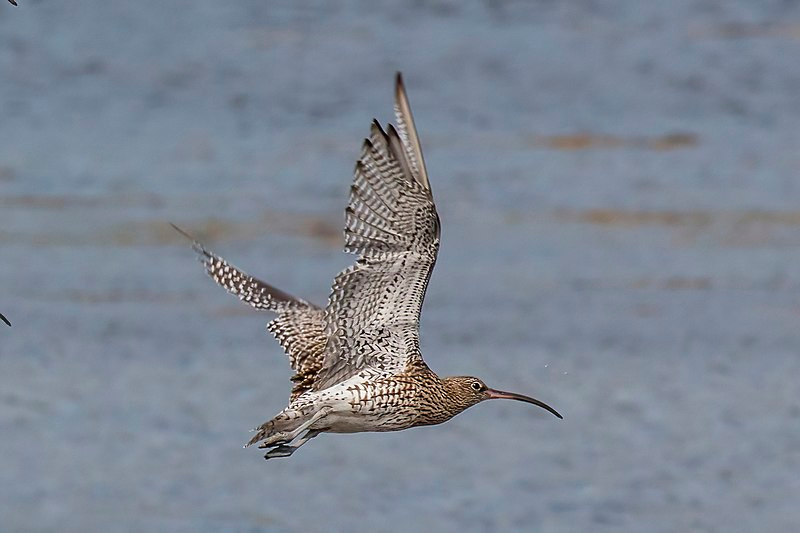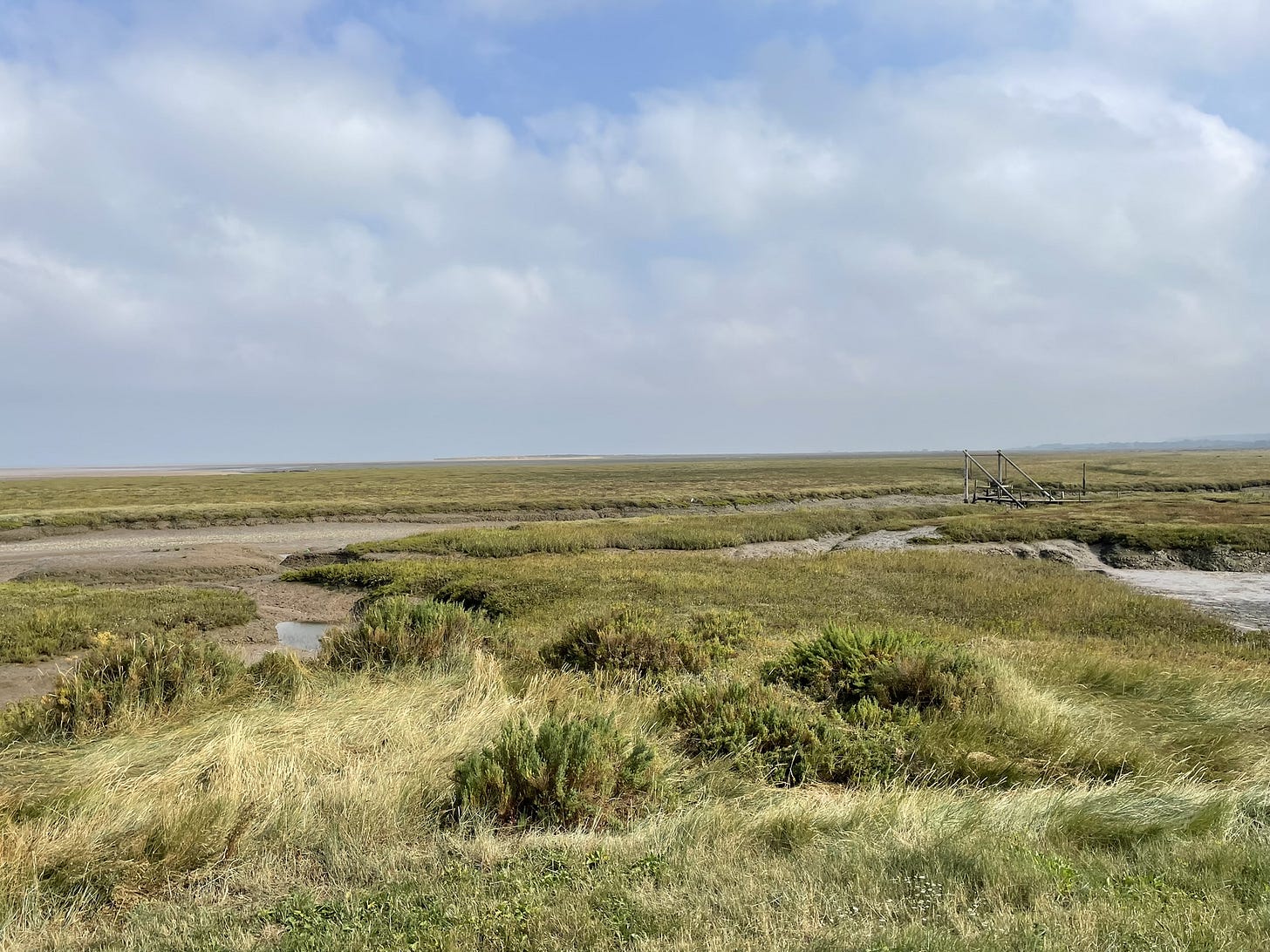“Sorley is like the seal-folk,” Ruar said. “He too was torn between who he loved and his truest self, which belongs to the wild shore. But you can hear his longing for Gundarstorp in his music. It holds the rhythm of the waves, the cry of the curlew, the splash of a stream.”
-Empire’s Passing
The cry of the curlew. Before we were even ready to walk, the saltmarsh spreading north from the carpark, I heard its wavering call, one of the sounds that tell me I’m back in Norfolk, back to the landscape of tidal creeks and reed beds, long sand beaches behind coastal dunes, wet meadows, freshmarsh and salt.
I didn’t know whether to expect to hear curlew in September. I purposely didn’t check the e-bird frequency charts, partly from apprehension, I think, partly so that I had no expectation. Curlews are near-threatened, and red-listed (most urgent need for conservation) in the UK. There are always fair numbers here in Norfolk in the winter, but they – like me – are escaping harsher climate, not birds that breed here. September is post-breeding, pre-winter. An unknown season for me.
But there we were, at the end of Staithe Lane at Thornham, the onomatopoeic ‘cuu-luuu’ drifting up from the marsh, and something in my heart lightened a little. Why does any given bird become the one that matters more, when it shouldn’t? There were redshank feeding on the mud, and oystercatchers further out along the tidal creek, and they say Norfolk to me too, but it was the curlew I’d been waiting to hear.
I found the birds without a problem, probing the mud where the tide had receded, but while seeing them was extra validation, it was the call that mattered. The black-headed gulls can scream; the redshanks pipe, the meadow pipits give their two-part call and the linnets twitter, but they’re the backup musicians. In this liminal space, this concert hall of edgeland and sky, it’s the curlew I’ve come for.

I gave the cry of the curlew the same meaning for my character Sorley in my Empire’s Legacy series: separated, for reasons that change over time, from the place he most deeply belongs, the curlew’s call takes him there, to the landscape of his heart. And in the new book, the character Audun, child of the marshes and tides, will find the same longing encompassed in that high, oscillating cry - a cry, that for Sorley, for Auden, for me – has an edge of sadness, of a world changing, of a world that might be lost forever, except in memory.
None of us know our future, but it’s a good guess I don’t have that many more years in which to spend my winters in Norfolk – whether from age making travel more difficult, or simply the changing world. And even if I can, there may come a time when I can no longer hear the curlew, higher notes already becoming harder to pick out. So the day will come for me when I have only the memory. But here, now, on this October day, none of that is true, and I and the curlew’s cry still belong to the wild and changing shore.
That same sense of the curlew as a harbinger of endings is captured in Spell Songs’ haunting song Curlew, based on the poems in The Lost Spells by Robert MacFarlane and Jackie Morris. Listen here:



The call of the curlew is certainly the most evocative of all birdsounds.
Love your line Marian, "the concert hall of the edgeland." Hearing a curlew's call arising from the early morning marsh is one of the best British bird encounters one could have.